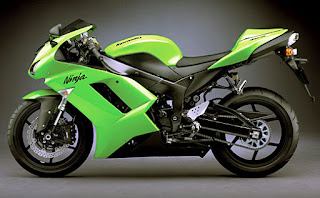 |
| Ford Expedition (5200~5900 pounds) vs Smart Car (1650 pounds) |
Well, if you drive a 2, 3 or 4 ton SUV, van or truck, this is a GREAT idea. If you drive a 1 ton or 1.5 ton fuel mizer, this will cost you more. If you ride a 1/5 ton motorcycle or 1/8 ton scooter, THIS IS DOWNRIGHT ROBBERY. Don't do it! But, don't take my word for it. Today, you do the math!
Firstly, how much are you paying in gas tax? Wikipedia adds the 18 cent federal tax to state and local sales taxes, and tabulated the figures here: https://en.wikipedia.org/wiki/Fuel_taxes_in_the_United_States
Click here to see it full size:
This shows most states fall between 35 cents and 55 cents per gallon. Exceptions are Alaska at 29 cents, while Hawaii, California, Pennsylvania, New York and Connecticut are between 59 and 70 cents. These expensive states are much more liberal, by the way. But greed won't stop them from picking on the green movement. Traitors.
Oregon tax is about 50 cents. Long story short (so you don't have to skip to the end of the blog), divide 50 by your car's mpg, and this is your cents per mile:
50 cents/gallon / 33.3 miles per gallon = 1.5 cents per mile
This is Oregon's cutoff point, 33.3 miles per gallon. Any less than that, get the miles meter. Any more than that, just pay the gas tax.
If you have a 50 mpg motorcycle that weighs 10 or 20 times less than these huge SUVs and pickups and vans that get 10 to 17 mpg, then you are paying anywhere between 1/3 and 1/5 of what these "light trucks" are paying. So, in effect, you are over paying for road damages by a factor of 4 when compared to the heaviest pickups and SUVs (6000 to 8000 pounds) that get 10 mpg, and you are overpaying by a factor of 2.5 compared to the typical 4000 to 5000 pound SUV and pickup that gets 17 mpg.
Here's the other end of the scale, states having a total of 35 cents per gallon tax:
In this state the cutoff point is 23.3 mpg. Any better than that, pay a gas tax. Any worse, get the miles meter for your car.
Since all but 6 states fall between 35 and 55 cents per gallon tax, your cutoff point is between 23.3 and 35.5 mpg. This covers almost all cars and minivans! Your state's cutoff point will have to be calculated by hand. Here, you do the math.
I had chosen 10,000 miles per year because the national average was 11,000 miles recently. In fact, this number does not matter, it cancels out.
(10,000 miles / 30 mpg ) * 45 centsPerGallon = 10,000 miles * 1.5 centsPerMile
The 10,000 miles figure appears on both sides of the equation, so it cancels out.
45 / 30 = 1.5
1.5 = 1.5
So, in a state with a 45 cent gas tax, a car at 30 mpg is the cutoff point.
 |
| Ford Excursion (7200~8000 pounds) vs Smart Car (1650 pounds) |
Let's try a 40 mpg Toyota Corolla or Honda Civic in Alaska where the tax is about 30 cents per gallon.
30 / 40 = 1.5
0.75 = 1.5
The Corolla is paying only 75 cents per mile in Alaska, exactly half of the Oregon miles meter would charge. And that's fair, considering these two cars weigh half as much as an average SUV, pickup or van.
Let's try a 13 mpg pickup, van or SUV in Pennsylvania, where the gas tax is 70 cents per gallon. We're talking 6000 to 8000 pound vehicles: Dodge Ram 3500, Ford F-350, Hummer H1, Hummer H2, regular van, 19 passenger van, Escalade, Suburban, Yukon, the older Expedition and the Big Mother of them all, the Ford Excursion.
70 / 13 ?= 1.5
5.4 /= 1.5
 | ||
| 40 ton semi vs 8 ton bus vs 2 ton minivan |
The "light truck" (6000 to 8000 pounds, twice that of an average to the largest cars) pays 5.4 cents per mile in PA. Is that fair compared to an average 3000 pound car getting 35 mpg, or a large car at 3750 pounds averaging 24 mpg, like the Buick Lucerne?
70 / 35 = 2.0 cents per mile
70 / 24 = 2.9 cents per mile
So, the 3000 pound car pays 2.7 times less, but weighs 3/6 or 3/7 or 3/8. "It pays less than it weighs."
The 3750 pound car pays 1.9 times less, but weighs 4/6, 4/7 or 4/8. It also "pays less than it weighs".
So, the 6000 pound van, Suburban or pickup weigh 6/4, but pays 1.9 times more. So, it weighs 1.5 times more, but pays 1.9 times more. This might be a wash, since the larger "light trucks" have 100 more hp, and larger brakes, too. This tears up the asphalt at red lights and at corner entrances. You can actually see where the asphalt is pushed up and wrinkled like a rug at the end of a hallway where people stop or turn.
 |
| Kawasaki Ninja, 600cc, 435 pounds, about 40 mpg |
Let's compare my 57 mpg, 430 pound motorcycle (sport bike) to a 4500 pound minivan averaging 22 mpg. By the way, I get as much as 65 mpg, but sometimes 52, so my average is about 57. And let's pick a sunny state with more bikes, like California at 66 cents per gallon tax.
66 / 57 = 1.15 cents per mile
66 / 22 = 3.00 cents per mile
Since minivans weigh between 4000 and 4500 pounds, while sportbikes weigh between 400 and 450 pounds, the bike weighs 10 times less. But, it only pays 2.6 times less. The bike is overpaying by a factor of 3.85, and that's a lot worse than what the light trucks are overpaying, because if we all rode motorcycles, the roads would never need to be repaved. Who's the social burden now? Right back at ya!
Of course, most people don't ride in top gear like I do. They zip around in low gears, getting 40 mpg or so.
66/40 = 1.65 cents per mile
These fools are overpaying by a factor of 5.5! They've paid for their road use AND the next 4 and a half motorcycles behind them.
 |
| Not an average car, but average mpg. |
But, only the state budget office is concerned about road damage. All you are concerned with is saving money. So, the simple way to figure it is to take your state's tax in cents and divided by your miles per gallon, then compare that to the 1.5 cent road tax in Oregon (or whatever it will be in your state). An average state divided by an average car:
45 cents per gallon / 25 miles per gallon = 1.8 cents per mile.
Mustang, Camaro and Charger owners might want that Oregon meter.
-------- Figuring gas mileage ------ Getting good gas mileage ------------
An easy way to figure your gas mileage, in fact, the only way, is to fill up your tank two times in a row, and make sure you reset your trip meter at the first fill-up. Then divide the miles by the gallons at the second fill-up.
300 miles / 15 gallons = 20 miles per gallon
Just remember, when air density is high, you push more air, which takes more horsepower (more fuel). Your engine also gulps more air when the air is more dense, so the computer must compensate with more fuel, just to keep it from misfiring. When I drove a van at low elevations in cool weather, it would get 16 mpg. When I drove it around Denver in Summer, it would get 20 mpg. The same thing happens between Summer and Winter, night and day, headwind/tailwind.
Also, your best mpg is as slow as you can go in top gear without the engine bogging down. Depending on your car, this could be 35 mph (3 speed truck with a V-8), 40 mph (top gear in a 3 cylinder econobox) to 50 mph (top gear in my under-powered Grand Am). My overpowered sport bike pulls 6th gear from as low as 22 mph. Hence the 65 mpg.




No comments:
Post a Comment